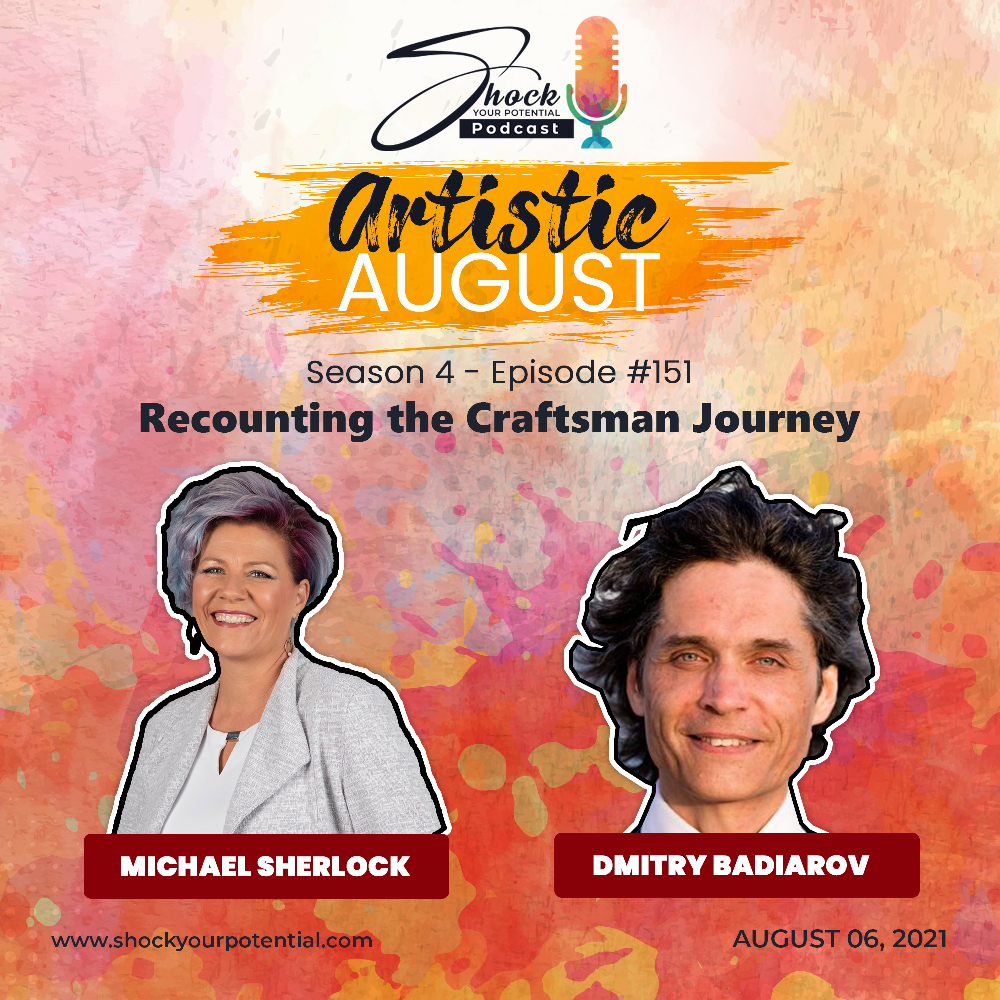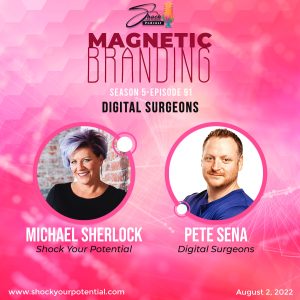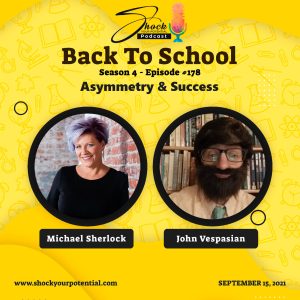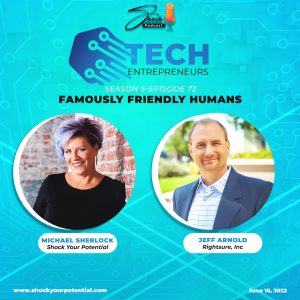“The results are literally in direct proportion with the actions we take and the actions are in direct proportions with the emotions, beliefs that we have.” Dmitry Badiarov
A lot of what we go through in life usually turns out to be the preparation for us to take up bigger responsibilities in the future. This is especially true when we are able to identify our purpose and passionately work to live it, as is the case of our guest today, Dmitry Badiarov.
Dmitry Badiarov is a professional designer of high-end, concert grade violins, as well as a musician, mentor, and entrepreneur and is fiercely passionate to the core. He currently sells his beautifully crafted instruments to world-class violinists, after many years of toil and turmoil studying the ancient secrets of acoustics, and several more of attempting to sell his wares in a competitive industry where factory-made instruments are now flooding the market. Now known within the classical music world as the Ambassador to Ancient Traditions, he credits his successes to the business skills which helped him get his name out there.
However, as true as this may be, there is another driving force that has helped Dmitry get to where he is today: dedication. From the very beginning, he knew that he wanted to create original instruments that paid homage to the thought processes of the ancient masters. But, after many years of intense study and substantial investment in his craft, he found that few people were willing to pay for his creations. He was told time and again that musicians would only buy standard designs, and even that he would never make it as an instrument maker. Try as they might, though, his naysayers couldn’t hold back a man with a vision who was destined for success.
In 2002, Dmitry opened up his violin-making studio in Brussels and was able to quickly build up a client list of famous concert musicians. 28 years later, his business is as successful as it ever was, thanks to the powerful combination of his exquisite design skills coupled with his impressive knowledge of marketing. Today, he passes on what he has learned in both areas to other ambitious instrument makers, working with them to improve their entrepreneurial skills, double their income, and get paid before they even begin crafting their instruments. He helps his students to thrive so that together they can ensure the ancient traditions live on and continue to enrich our culture. Ultimately, Dmitry believes that “if you are going to make instruments, leave a legacy, a mark the world can’t ignore or erase.”
In today’s episode, we will learn more about Dmitry’s journey to being among the best instrument makers as well as an entrepreneur. We will further discuss some of the defining moments he went through and the lessons he learned from those moments that led him to where he is today.
Listen in!
Social Media
https://http://www.badiarovviolins.com/
https://http://www.badiarovviolins.com/
https://facebook.com/badiarov.violins/
https://facebook.com/dmitrybadiarov/
https://facebook.com/DmitryBadiarovEntrepreneur/
https://www.instagram.com/badiarovviolins/
https://www.linkedin.com/in/dmitry-badiarov-mentor-violin-maker-award-winning-speaker/ https://www.youtube.com/c/Badiarovviolins-Custom-Made-Fine-Instruments-Sale
- I began playing the violin at the age of eight. [5:36]
- The violin that I played as a child was cheaply and quickly made and was a factory mass-produced instrument. [5:43]
- I imagine myself in the room of my professor and it was nothing spectacular and belonged to the local Opera Theatre. And this is where all the musicians lived and also where my parents lived. [6:01]
- My father was a musician of the Opera Theatre and so he had a room in the dormitory. [6:14]
- It was a very tiny room with just like a bed, the wardrobe, and a music stand, but through the window was the most spectacular view over an immense fruit garden all in blossom extending to the horizon. [6:20]
- At the age of 11, I was playing squeaking, terrible, screeching sounds on the violin. [7:09]
- I had my very handsome professor, an absolutely incredible pedagogue who I was in love with back then and we’re still in a very warm and close relationship. [7:15]
- He was telling me how to play and I tried over and over until finally with desperation, I stopped playing and said to him that no matter how hard I worked, I will never sound like him because my violin was not as gorgeous as his and so we needed to fix my violin first. [7:45]
- He agreed and I asked him to introduce me to the violin maker in the town who was a kind of a magician. [8:28]
- When I saw him I was hypnotized and I did not know what happened. I lost the gift of speech and froze and when I spoke I did not ask him to please fix my violin but asked if he could please teach me to fix my violin by myself. [9:23]
- He had an incredible personality, a gentle and mysterious smile and radiating with kindness and love. [9:56]
- He had musical instruments on the walls of his workshop and all of the musical instruments were very unusual and very, very exotic. [10:04]
- To my surprise, he accepted me and asked me why I wanted to do that yet he could just fix it for me and I told him that I was a violinist and I wanted to know why the violin sounded like it did. [10:25]
- He accepted me and so I started frequenting his workshop and this man whose family name is Olbermann, became my hero. [10:42]
- When Olbermann settled into town, he decided to not only fix instruments for other musicians but also completely reconstruct the lost culture of folkloric music in that Republic which was lost during the years of communist rule. [11:16]
- If people don’t take care of arts culture and music, these things tend to disappear and get lost completely. [11:57]
- He noticed that there was an issue and that people wanted to have their own culture which was like national pride. [12:07]
- And so over the next five years, I witnessed Olbermann reconstructed enough musical instruments which were completely lost and no one knew them. [12:35]
- He traveled the mountains and went to villages where found elderly people who had those instruments and who still remember how to play them and the songs and tunes, recorded them all, and measured all of the instruments. [12:47]
- As a result of this work, he created enough instruments for two orchestras which when they got to work for the first time they presented on the national TV and radio, and many other places. [13:15]
- This brought a sense of incredible happiness in the air and people were so proud which made me think that if an instrument maker can produce that sort of happiness, fulfillment, pride, and achievement in people then I want to be an instrument maker. [13:40]
- That I the role this man played in my becoming an instrument maker and set me on the path to what I’m doing today. [14:04]
- Commercial break. [18:16]
- Putting the part I played as an eleven-year-old out again is almost like anchoring in the powerful moments in the past so that you can overcome obstacles in the present and it is something that I’m very passionate to speak about to people who feel that they are stuck, and they want to achieve more. [21:38]
- This experience from the 11 years of age and several other experiences I had afterward are the kind that are powerful psychological anchors that we create in ourselves which we can use and reuse again. [21:58]
- Back in 1992 in St. Petersburg, I was making my first violin and I was studying music violin playing at one of the most elite schools in the country and the world. [22:25]
- All of my peers had amazing instruments that cost millions of euros today or dollars and I still played quite a simple instrument and I was thinking how I could get a better instrument yet did not have the money. [23:05]
- I thought that I had had a very good teacher of violin making in St. Petersburg, and I had started making my instrument, and I didn’t have the tools and therefore was making my very first violin using tools that I had made myself from fingernails. [23:34]
- I however had this burning desire not to feel inferior and compare myself with my peers, and so I wanted to have a wonderful violin therefore I was all focused on the process rather than obstacles. [24:19]
- At one certain moment, the phone rang and I picked it up and it was my violin-making instructor from St. Petersburg who was informing me about somebody selling violin-making books. [24:40]
- The next day I took take a train local train from St. Petersburg to the countryside and I arrived at a wooden Dasha, a Russian-style house. [25:28]
- I entered the house and met a lady who was the widow of a violin maker who passed away 30 years ago who had decided to move to live with her relatives. [26:05]
- She then showed me the books and they were the kind that was very hard to come by books on violin making belonging to her husband, who died 30 years ago. [26:54]
- She also had these 19th century English handmade tools for violin making which she showed to me and I was very much interested and was like a dream coming true. [27:13]
- She was selling the tools at $1,000 which sadly was money that I did not have and that made me frustrated and so miserable and destroyed. [27:49]
- I decided that I was going to find that money, no matter what and so I made many calls, and by the end of that crazy calling day, I had this $1,000. [29:17]
- When you commit to something that you feel is your thing to do, you unleash some kind of energy and you tap on the powers of the universe. [31:03]
- I was flooded with work and in less than a year, I earned all this money and I paid all my debt and then earned some which I later invested into moving to go to Brussels to study with the celebrated Maestro to take my life in my career to the next step. [31:20]
- So as a result of this story, I have learned that an entrepreneur is someone who believes that there is a mission for them, and they want to do something, but they are afraid that things might go wrong. [31:36]
- You just feel the heart and listen to that tiny human voice telling you that there is something that you can you should do it and that is the thing where you will achieve something. [31:57]
- The results are literally in direct proportion with the actions we take and the actions are in direct proportions with the emotions, beliefs that we have. [32:18]
- Music is important because it is a direct language of emotion and emotion is what we need to feel to take action. [34:24]
- That is why you see in all entrepreneurial events, the speakers on stage always provide music that changes the state of the audience because when the audience is in a changed state only then the audience will take the right action. [34:34]
- But then what is music? What are musical instruments? And or what is art for that matter? All these things are related to what we call culture but what is culture? [34:18]
- The opposite of culture as defined in that same dictionary is the savage hard truth. And this is something that we do not want to have in our lives. [35:50]
- Mahatma Gandhi said that the culture resides in the hearts and in the minds of its people and this is why it is important to fill up those hearts and minds with something really valuable because the opposite is being savages. [36:10]
- That is why I believe that music, arts, and culture are so important today more important than ever. [36:28]
- Listen to your heart and always decide from the position of power because things can and will go right, it is just about commitment and action and the rest will just come to you in the avalanche of ever-increasing abundance. [38:05]
……………………………………………………………………………………
Thank You to our August Sponsor!
Tired of the time and expense to get a manicure or pedicure? Try Color Street today!
Base, color, and top coats of high-quality liquid nail polish in each strip results in a brilliant, salon-quality manicure in just minutes. No dry time, smudges, or streaks, and your mani/pedi lasts up to 10 days. Color Street is 100% real nail polish, not stickers.
Learn More: https://www.colorstreet.com/bhroberts/party/2095611




